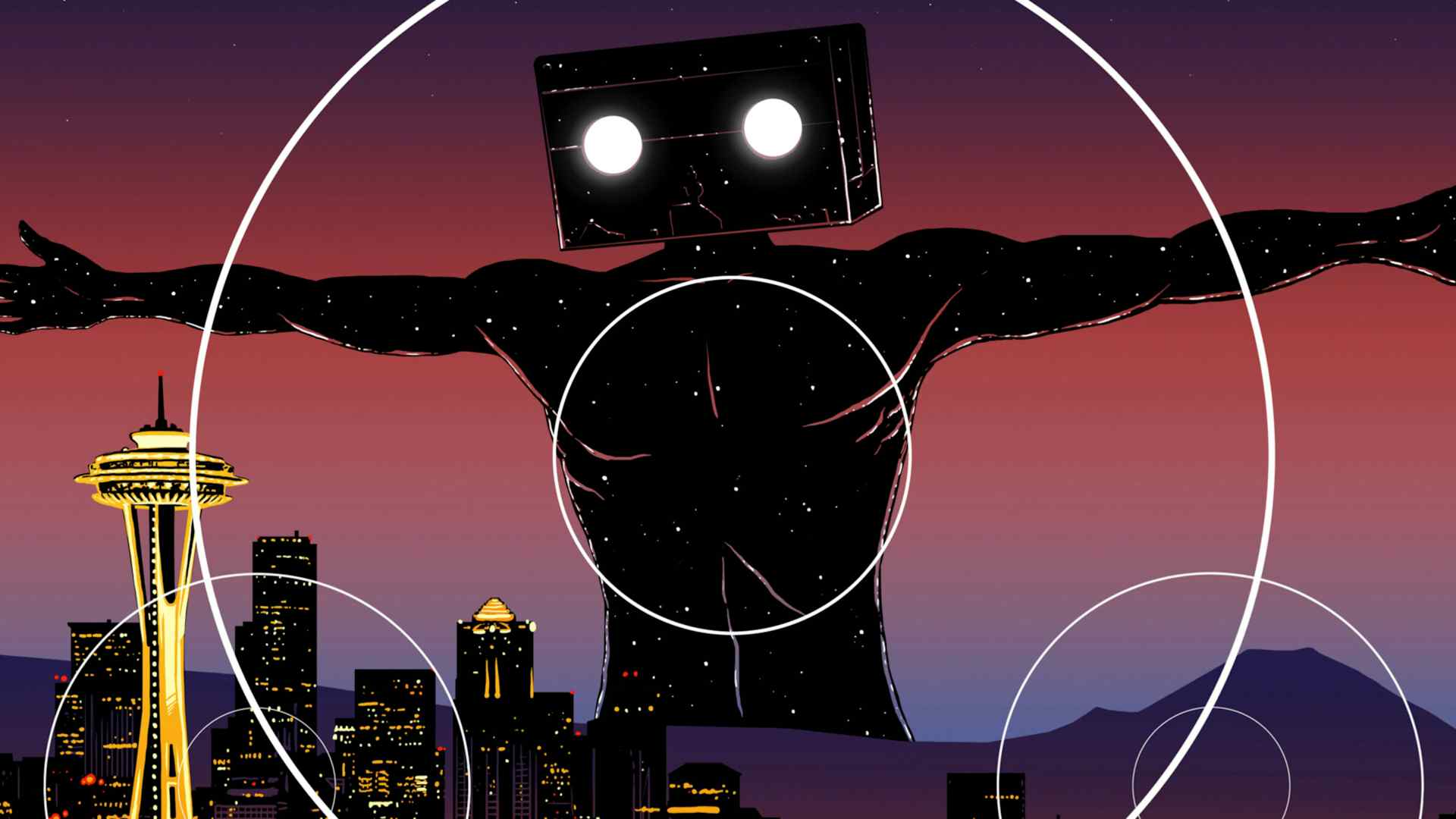Robert Horton is a Scarecrow board member and a longtime film critic. This series of "critic's notes" is chance to highlight worthy films playing locally and connect them to the riches of Scarecrow's collection.

In Seattle-area theaters we've got a 4K revival of Yorgos Lanthimos's Dogtooth at Northwest Film Forum, which leads to the shocking realization that Dogtooth was released all the way back in 2009. Well, it seems like yesterday. Looking through the Horton archives, I found that my Herald review of Dogtooth was unusually brief, as it was part of a twofer review that also included an appreciation of Portland filmmaker Aaron Katz' Cold Weather (which played at NWFF). Not a lot of Dogtooth, then, so I will throw in my 2016 review of Lanthimos's The Lobster, originally published in Seattle Weekly. As always, you can find a bunch of Lanthimos on the shelves of Scarecrow Video—hell, you can find Cold Weather there, too.
Cold Weather/Dogtooth
Two small films opening this week—one shot on a low budget in Portland, the other an Oscar nominee from Greece—test the expectations of how we define movies today.
Cold Weather is from filmmaker Aaron Katz, who grew up in Portland and has clearly internalized the Northwest's gray skies and damp atmosphere. This movie is wonderfully specific about its place, and about that place's diffident, laid-back people.
Like so many NW filmmakers, Katz is reluctant to do anything as conventional as tell a story. And for a half-hour, it looks as though Cold Weather might be another slacker study, about a guy named Doug (Chris Lankenau) who quit school, works in an ice factory, and lives with his sister (Trieste Kelly Dunn).
But stray references to Sherlock Holmes turn out to be not so stray. A mystery presents itself—someone goes missing—and Doug is suddenly enlivened by the possibility of a story presenting itself. Like the photographer in Blow-Up, he shifts gears when a puzzle enters his life.
Although our nerve endings may quicken a bit, Katz does not change his movie into a thriller. Rather, it becomes a look at why we need fictions in our lives, and what their uses are to us. The ending will probably divide audiences, but it leaves us pondering that subject, and feeling we've seen the real Portlandia.
A mystery is also alive in Dogtooth, which was nominated for the best foreign-language Oscar. But this mystery will never be solved, and it involves the nature of what on earth we are watching, which we piece together gradually as best as possible.
The setting is an isolated house with high fences. Middle-aged parents have three children who seem to be in their late teens/early twenties. These three have never seen an outsider, read a newspaper, or watched a TV show. They don't entirely know the meaning of certain words, beyond the bogus explanations their parents have told them.
Actually, they have seen one outsider, a young woman brought to the house to initiate the son in sex. This is filmed with explicit, deadpan calm, as is every outrageous thing in the movie.
Director Giorgos Lanthimos has a wicked game to play, and he maintains his bizarre premise like a funnier, more twisted M. Night Shyamalan. Dogtooth never takes a false step in its clever design, and it becomes all the more sinister if seen as an exaggerated parody of parental protectiveness taken to its furthest extension.
The movie itself is a closed system, and so a somewhat airless experience. But when it hits its stride—the way we learn which VHS movies have slipped into the house, for instance—it's inspired.
The Lobster
During his preliminary interview upon arrival at the program, David is asked the big question. If he does not fall in love with someone during his 45-day stay, what animal would he like to be transformed into? David chooses the lobster. His reasons are fully thought-out: Lobsters live for 100 years, they remain fertile, and they have blue blood, like aristocrats. Plus, he likes the sea. He's been swimming for years.
The Lobster is like this: full of specific detail, but coy about saying what the hell is actually going on. It's the first film in English by Greek director Yorgos Lanthimos, whose 2009 Dogtooth was a fine exercise in making skin crawl. Like that film, The Lobster comes on like a vaguely sinister George Saunders story, where it takes a while for the actual parameters of this self-contained world to disclose themselves. So we'll tread lightly on blowing the plot.
David (Colin Farrell, appropriately chunky and slow) is a single man of a certain age, which means he is required to check into a deluxe hotel for the purpose of finding a mate. He's brought along a dog, which—it slowly dawns on us—is actually his older brother, whose failed attempt to find a mate resulted in him being transformed into a canine. "The first thing most people think of is a dog," says the hotel's manager, played by the superb Olivia Colman, as she compliments David on his offbeat choice of lobster. "Which is why the world is full of dogs."
At the hotel, David makes a couple of friends (Ben Whishaw and John C. Reilly are fully cued in to the film's deadpan mode), but struggles to mate. It seems singles must pair up with people who share their "defining characteristic," a difficult match-up. In desperation, David pretends to be as awful as the sourpuss known only as the Heartless Woman (Angeliki Papoulis, from Dogtooth), in the hope that cruelty might be their shared characteristic. But he's too kind for that.
Out in the woods roams another population, also singles, led by a no-nonsense warrior (Lea Seydoux). This where Rachel Weisz finally appears onscreen, although we've been hearing her voice throughout. (I don't entirely understand why she narrates the movie, but in my universe Rachel Weisz should narrate all movies, so it's fine.) If this woodsier second half falls off in intensity from the first, it still builds to a supremely troubling ending. The Lobster is maybe a little too pleased with itself about how mysterious and enigmatic it all is, but even if you find it exasperating, Lanthimos's command of film style is constant. This is true from the movie's first moments, an unexplained sequence involving a woman driving to the side of the road and pulling over to shoot an animal grazing there. The tone, the sound, the composition—the way the mist beads up on the windshield, the wipers clearing it off every few seconds so we can witness the standoff with the animal—all the tools are perfectly deployed.
And even if you don't cotton to this brand of cult-friendly oddness, it's hard to deny Lanthimos's skill with actors. Everybody performs as though they've been given deep backgrounds on their characters and this imaginary world, very little of which is divulged to the audience. Let's pause to give special credit to Colin Farrell, speaking in his own Irish accent here (the film was beautifully shot on his native isle by cinematographer Thimios Bakatakis—an Irish name if ever I heard one). I found Farrell's early performances to be superficial, as though he'd been thrown into the deep end without anybody telling him how to tread water. But ever since In Bruges—which really might be a modern masterpiece—he's been turning in strong, flexible work. Here, he's completely submerged in David's numb sadness, and he holds the screen without seeming to do anything at all.
The Lobster is being marketed as a comedy, and it is frequently funny, but only in the way A Clockwork Orange is frequently funny. Go and have a laugh, for sure, but don't be shocked when the claws come out.
August 8, 2025


